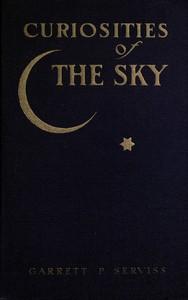|
|
Read this ebook for free! No credit card needed, absolutely nothing to pay.Words: 72733 in 26 pages
This is an ebook sharing website. You can read the uploaded ebooks for free here. No credit cards needed, nothing to pay. If you want to own a digital copy of the ebook, or want to read offline with your favorite ebook-reader, then you can choose to buy and download the ebook.

: Theresa Raquin by Zola Mile Vizetelly Ernest Alfred Translator - Adultery Fiction; Guilt Fiction; Murder Fiction; Paris (France) Social life and customs Fiction@FreeBooksTue 06 Jun, 2023 Translator: Edward Vizetelly Produced by: Dagny, John Bickers and David Widger TH?R?SE RAQUIN Translated and edited with a preface by Edward Vizetelly PREFACE This volume, "Th?r?se Raquin," was Zola's third book, but it was the one that first gave him notoriety, and made him somebody, as the saying goes. While still a clerk at Hachette's at eight pounds a month, engaged in checking and perusing advertisements and press notices, he had already in 1864 published the first series of "Les Contes a Ninon"--a reprint of short stories contributed to various publications; and, in the following year, had brought out "La Confession de Claude." Both these books were issued by Lacroix, a famous go-ahead publisher and bookseller in those days, whose place of business stood at one of the corners of the Rue Vivienne and the Boulevard Montmartre, and who, as Lacroix, Verboeckhoven et Cie., ended in bankruptcy in the early seventies. "La Confession de Claude" met with poor appreciation from the general public, although it attracted the attention of the Public Prosecutor, who sent down to Hachette's to make a few inquiries about the author, but went no further. When, however, M. Barbey d'Aurevilly, in a critical weekly paper called the "Nain Jaune," spitefully alluded to this rather daring novel as "Hachette's little book," one of the members of the firm sent for M. Zola, and addressed him thus: "Look here, M. Zola, you are earning eight pounds a month with us, which is ridiculous for a man of your talent. Why don't you go into literature altogether? It will bring you wealth and glory." Zola had no choice but to take this broad hint, and send in his resignation, which was at once accepted. The Hachettes did not require the services of writers of risky, or, for that matter, any other novels, as clerks; and, besides, as Zola has told us himself, in an interview with my old friend and employer, the late M. Fernand Xau, Editor of the Paris "Journal," they thought "La Confession de Claude" a trifle stiff, and objected to their clerks writing books in time which they considered theirs, as they paid for it. Zola, cast, so to say, adrift, with "Les Contes a Ninon" and "La Confession de Claude" as scant literary baggage, buckled to, and set about "Les Mysteres de Marseille" and "Th?r?se Raquin," while at the same time contributing art criticisms to the "?v?nement"--a series of articles which raised such a storm that painters and sculptors were in the habit of purchasing copies of the paper and tearing it up in the faces of Zola and De Villemessant, the owner, whenever they chanced to meet them. Nevertheless it was these articles that first drew attention to Manet, who had hitherto been regarded as a painter of no account, and many of whose pictures now hang in the Luxembourg Gallery. "Th?r?se Raquin" originally came out under the title of "A Love Story" in a paper called the "Artiste," edited by that famous art critic and courtier of the Second Empire, Arsene Houssaye, author of "Les Grandes Dames," as well as of those charming volumes "Hommes et Femmes du 18eme Si?cle," and many other works. Zola received no more than twenty-four pounds for the serial rights of the novel, and he consented at the insistence of the Editor, who pointed out to him that the periodical was read by the Empress Eug?nie, to draw his pen through certain passages, which were reinstated when the story was published in volume form. I may say here that in this translation, I have adopted the views of the late M. Arsene Houssaye; and, if I have allowed the appalling description of the Paris Morgue to stand, it is, first of all, because it constitutes a very important factor in the story; and moreover, it is so graphic, so true to life, as I have seen the place myself, times out of number, that notwithstanding its horror, it really would be a loss to pass it over. Free books android app tbrJar TBR JAR Read Free books online gutenberg More posts by @FreeBooks
: The Coming of the Friars by Jessopp Augustus - Great Britain History Medieval period 1066-1485@FreeBooksTue 06 Jun, 2023

: Ancient China Simplified by Parker Edward Harper - China; China History Children's History@FreeBooksTue 06 Jun, 2023

: Curiosities of the Sky by Serviss Garrett Putman - Astronomy Science Fiction; Astronomy@FreeBooksTue 06 Jun, 2023
|
Terms of Use Stock Market News! © gutenberg.org.in2025 All Rights reserved.






